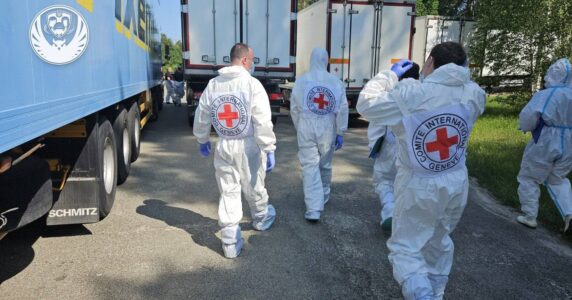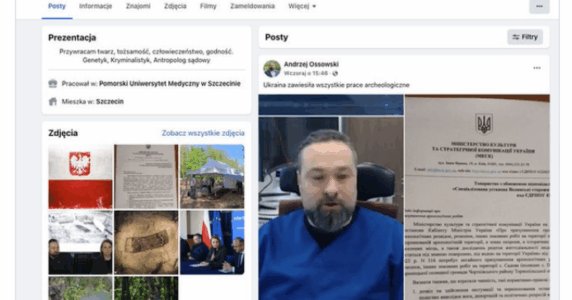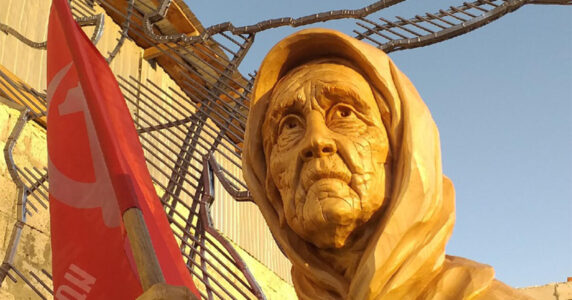Navigation and useful materials
Active touring of Russian artists in the occupied Ukrainian territories is a strategic move by the Kremlin and a tool to legitimize the occupying power in the eyes of local residents, which should convince them of the “benefits” of “reunification.”
So what’s wrong with Russian “apolitical” musicians? Why and how do they threaten our national security? What is the point of banning concerts?
The concept of soft power was first introduced about three decades ago. Joseph Nye, an American political scientist and future official of US President Bill Clinton administration, put forth this idea in the pages of Foreign Policy magazine. He argued that, although in the late 20th century the influence of the United States was weaker than immediately after the end of World War II, the country still had a unique source of power apart from military. And this force can be used “to do things and to control others, to get them to do what they otherwise would not and to cement its leadership position in the world.”
He called this phenomenon soft power, a tool that became an alternative to the arms race and defined the post-Cold War era.
The researcher put the content of the US soft power into three categories: cultural, ideological and institutional. And it was based on liberal democratic politics, free market economics and fundamental values such as human rights.
In fact, nation-states have been practicing soft power for centuries. However, in the space of national security, it is only now gaining the same recognition as its tough, older and more obvious analogue — military force.
We can summarize that a country’s soft power is most efficient when it combines three resources — the country’s culture (where it is attractive to others), its political values (if it matches up to them at home and abroad) and its foreign policy (if it is a moral authority).
Experience shows that the soft power of authoritarian regimes, unlike democracies, has completely different goals and mechanisms. Over the past few decades, authoritarian regimes have increasingly used this tool.
China is one such example. When the country began to sharply develop its hard power, a strategy was formed among the political leadership, which stipulated that with China’s military and economic power growth, the country should become more attractive in the international arena. That’s what soft power was supposed to be for.
The need to invest more in soft power was mentioned at the 17th Congress of the Communist Party of China in 2007 by Chinese President Hu Jintao, and the current President Xi Jinping also talks about it. Since then, billions of dollars have been invested in advancing soft power capability, and thousands of articles have been published on the subject.
China has achieved mixed success with its soft power strategy. The country’s impressive economic growth record, which has lifted hundreds of millions of people out of poverty, and its traditional culture have become important sources of attractiveness. However, polls show that China not only lags behind the U.S. in overall attractiveness in most parts of the world, including Asia, but is also becoming an increasing threat on a worldwide scale.
Since the early 2000s, Russia has also begun to actively incorporate soft power policies into its foreign policy strategy. This concept arose in the context of the Kremlin’s ambitions in the so-called “near abroad” — to extend its power to “compatriots” in post-Soviet countries and regain its superpower status. In fact, it has turned soft power into “soft aggression.”
Russia’s political leadership interprets the concept of soft power differently than Joseph Nye defined it. According to the political scientist, “countries like Russia or China, which have declared their commitment to the concept of soft power for various reasons, cannot become attractive to the target international audience.” Many Chinese and Russian soft power initiatives often pursue overtly pragmatic goals based solely on their own interests, without regard to the interests of international partners and community. Thus, for the Kremlin, soft power is a tool for manipulation.
Since the mid-2000s, Russia has been trying to develop its own concept of soft power and its own implementation mechanism. In 2012, soft power became one of the key tools of the Kremlin’s foreign policy.
At the annual meeting of Russian diplomats in 2012, Putin delivered a speech on a new foreign policy concept, where he set the task to use soft power methods. In 2013, the idea of soft power was officially introduced into Russia’s foreign policy concept.
Along with soft power, Russia has repeatedly used hard power tools over the past twenty years, as in the case of Georgia in 2008 and Ukraine in 2014. Such actions, firstly, contradict Russia’s official proclamation of non-violent foreign policy methods, and secondly, it also shows that both soft and hard powers are equally dangerous in the hands of the aggressor. And, if one force subsides at a certain time, another comes on-stream. And in critical situations, as has already happened in Georgia and Ukraine, it is soft power that enables and even simplifies the possibility of military intervention.
According to Volodymyr Yermolenko, philosopher, Doctor of Political Studies, “today’s power of Kremlin-led Russia is not only in tanks and military invasions, as in Ukraine, Moldova and Georgia. Apart from expansionist brutality, the Kremlin also has soft power — a force that affects the mind, emotions and history. This soft power is much stronger than people in the West tend to believe.”
After 2004, the Kremlin began active development of its own slogans to promote its interests abroad, especially among the Russian diaspora in post-Soviet countries.The first version of soft security strategy was based on the concept of “Russian world”, aimed at all Russian-speaking people living outside Russia. In 2006, at a meeting with representatives of creative intelligentsia, Putin specified the meaning of this concept: “Russian world can and should unite all those who value the Russian word and Russian culture, wherever they live, in Russia or abroad. Use this phrase more often — Russian world”.
Later, Russian Peace Foundation became one of the centers for the implementation of the Kremlin’s soft policy. In 2012-2013, the number of cultural centers and pro-Russian organizations began to grow rapidly in Ukraine. At that time, a network of the Russian World Foundation centers was created at schools, libraries, and universities. This map clearly shows that the number of such centers in Ukraine is higher than in neighboring countries. There are four in Ukraine, one in Belarus, and two in Latvia and Lithuania.
In 2008, Russia established the Federal Agency for the Commonwealth of Independent States (CIS), compatriots living abroad, and for international cooperation — Rossotrudnichestvo. This institution became the basis for the use of Kremlin’s soft power abroad.
A Rossotrudnichestvo department still operates in Ukraine under the guise of the Russian Center for Science and Culture and, despite trying to avoid conflicts and provocations openly, it still actively promotes the Kremlin narratives, albeit veiledly.
This Center cooperates with numerous organizations and societies on the territory of our state, including NGO “Center of National Cultures” (Kyiv); International Association of Slavic Unity named after P.A. Stolypin (Kyiv); International Pedagogical Club (Kyiv); NGO “Kharkiv Society of Eastern Slavs” (Kharkiv), NGO “Veterans of the Great Patriotic War, Labor and Military Service”; NGO “Rusych Mykolayiv” (Mykolayiv); Youth Club “Kievlianin” (Kyiv); NGO “Fellowship of Leningraders in Lviv “Peter Club“ (Lviv); Kyiv Society of Russian Compatriots “Batkivshchyna” (Kyiv).
Thus, Rossotrudnichestvo, together with these centers, which operate in Ukraine quite legally, creates a network of centers disseminating the Kremlin narratives and promotes an “objective perception of Russia” abroad.
Another tool of the Kremlin’s soft power is Russian pop culture. Although, of course, both politicians and Russian performers keep repeating Putin’s mantra that “true culture and art must stay out of politics,” a tour of Russian performers in Ukraine is a very easy and quick way for the Kremlin to spread pro-Russian messages to Ukrainian audience.
Morgenstern, Baskov, Shura, Boyarsky and about 200 other people are included in the “black list of the SBU.” Everyone on this list is banned from entering Ukraine for various reasons. Some of them publicly supported the occupation of Crimea and called it a “reunification,” for example, Oleg Gazmanov, Valeria, Iosif Prigozhyn, and Nikolai Rastorguev. Some give regular concerts on the peninsula, for example, Lolita, Katya Lel, Grigoriy Leps, or toured in the occupied territories of Donbas — Yulia Chicherina and actor Porechenkov.
Among them are some who claim that they do not support any political force, for example, Glukoza. After being detained by the State Border Guard Service in Ukraine she stated: “I have no attitude at all, I am out of politics. But for me, the opportunity to be in Ukraine is much more important.” However, the Russian authorities are very skilful in using the performers’ situation. The Kremlin’s policy makes them choose: to have the “right” position on Crimea, or have money and certain privileges that allow them to work in their field.
This list includes artists who are very supportive of Putin and popularize his policies through their speeches and tours. One of such ardent supporters of Putin is Filip Kirkorov. The singer has repeatedly expressed support for Russia’s annexation of Crimea and said that the peninsula is his “favourite place in Russia”.
Putin’s spokesman Peskov publicly acknowledged Kirkorov as ‘an element of the Kremlin’s soft power’: “We are so happy that his concerts take place abroad. There is such a thing as soft power abroad. He is one of the brightest representatives of this very soft power. His art conquers not only our compatriots, but also citizens of the countries he travels to.”
In his interviews, Kirkorov himself has repeatedly used manipulative statements that his songs bring love, peace and are designed to reunite the Ukrainian and Russian peoples. But no matter how hard Kirkorov tries to convince everyone of his apoliticism, he is the brightest epitome of Russian politics.
In January 2021, Kirkorov was banned from entering Lithuania because he “deliberately denied the territorial integrity and sovereignty of Ukraine and thus indirectly justified the aggressive actions of the Russian Federation” by his repeated visits to the occupied Crimea. On June 22, Filip Kirkorov was banned from entering Ukraine. However, on June 28, the decision was overturned, according to the SBU, due to “court precedents” and the need to investigate further. Kirkorov welcomed his return to the Ukrainian space on his Instagram: “Now in every house of Ukraine, my songs can be heard with full right, my shows can be broadcast on TV.”
Another example of the return of the ouright pro-Kremlin performer to the Ukrainian space is Russian rapper Basta. Since September 2017, he has been on the list of performers banned from entering Ukraine due to his visits to the occupied Crimea. In particular, Basta performed in Yalta in the summer of 2014 and 2015, and later participated in the All-Russian song contest about the Crimean bridge. In 2016, the performer starred as a Russian army officer in the film “Ke-dy” in Sevastopol. Besides, in 2014, the rapper regarded the events of the Revolution of Dignity as a “civil war”, mentioning other well-known anti-Ukrainian messages, such as “the division of the nation into East and West”, “Donbas feeds Ukraine.” His concerts in Kyiv and Odesa in 2021 became possible due to a formal expiration of the three-year ban.
Unfortunately, these cases show that Ukraine has not yet developed a clear understanding of the threats posed by Russia’s soft power.
In today’s world, there is no such thing as music, art, or sports outside of politics. The aggressor will definitely convince us that music is just music. But the active touring of Russian performers in the occupied Ukrainian territories is a strategic move by the Kremlin and a tool to legitimize the occupying power in the eyes of local residents that is supposed to convince them of the “benefits” of “reunification.”
For Ukraine, touring of Russian pop singers is actually a continuation of the occupation.
Russia’s soft power is a very powerful weapon of the Kremlin. It erases identity, creates a feeling that there is no war and creates conditions for weakening Ukrainian resistance to Russian aggression. Russian music is part of this weapon, which arouses as soon as hostilities subside.
If you have found a spelling error, please, notify us by selecting that text and pressing Ctrl+Enter.


